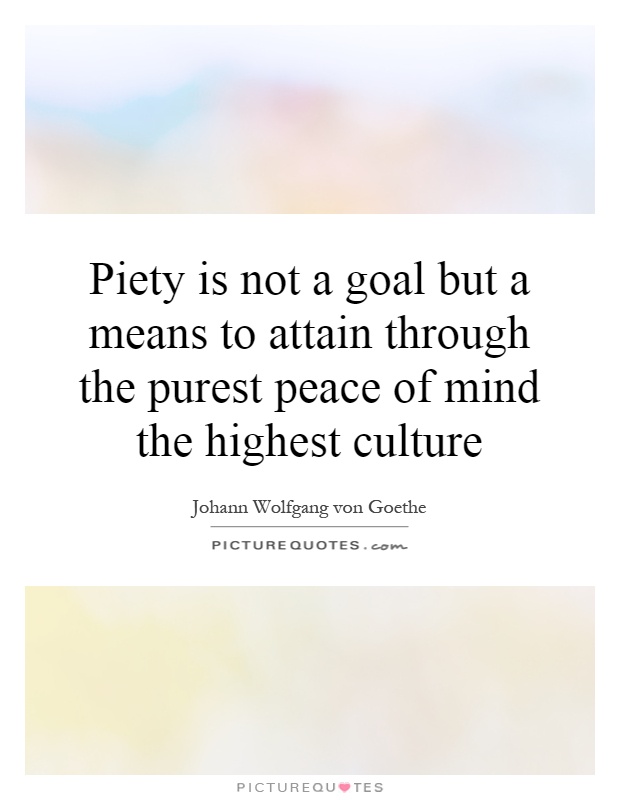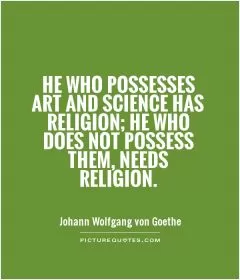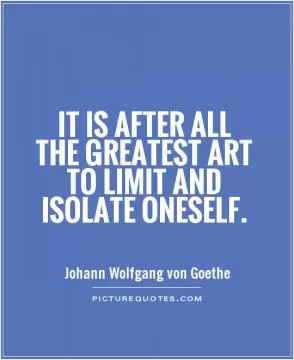Piety is not a goal but a means to attain through the purest peace of mind the highest culture

Piety is not a goal but a means to attain through the purest peace of mind the highest culture
Johann Wolfgang von Goethe, the renowned German writer, poet, and philosopher, was a firm believer in the importance of piety as a means to attain the highest culture. In his works, Goethe often explored the relationship between spirituality, morality, and personal growth, emphasizing the role of piety in achieving inner peace and enlightenment.For Goethe, piety was not simply a religious duty or a set of rules to be followed, but rather a state of mind that allowed individuals to connect with their inner selves and the world around them. He believed that true piety could only be achieved through a deep sense of inner peace and harmony, which in turn would lead to the development of one's character and intellect.
In his famous work "Faust", Goethe explores the theme of piety through the character of Faust, a scholar who makes a pact with the devil in exchange for knowledge and power. Throughout the play, Faust struggles with his own inner demons and desires, ultimately realizing that true fulfillment can only be found through a sense of piety and spiritual enlightenment.
In his personal life, Goethe was known for his deep spiritual beliefs and his commitment to living a life of virtue and integrity. He believed that true culture could only be achieved through a combination of intellectual growth, moral development, and spiritual enlightenment. For him, piety was not a goal in itself, but rather a means to attain the highest form of culture and personal fulfillment.












 Friendship Quotes
Friendship Quotes Love Quotes
Love Quotes Life Quotes
Life Quotes Funny Quotes
Funny Quotes Motivational Quotes
Motivational Quotes Inspirational Quotes
Inspirational Quotes